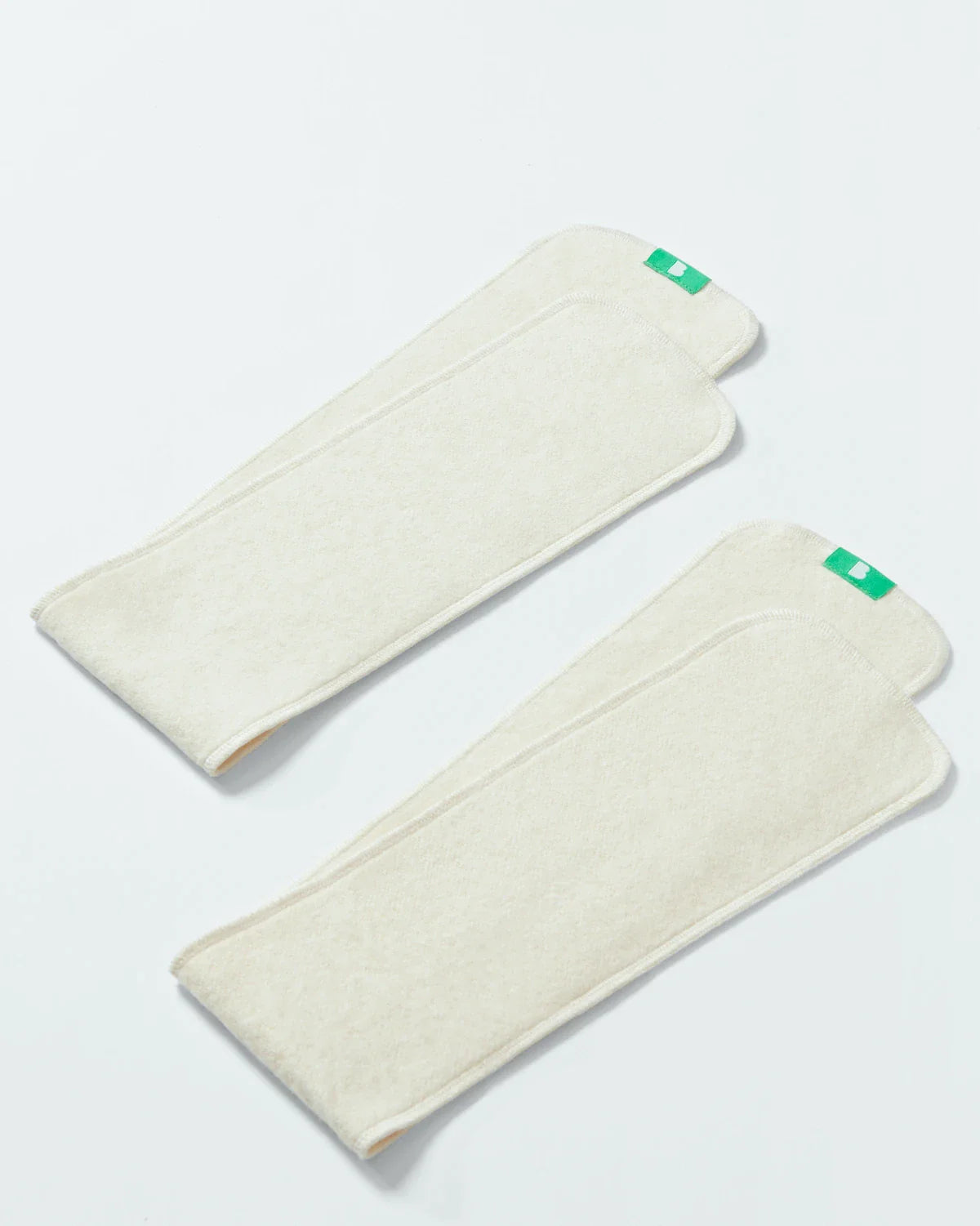Week 34 of Pregnancy | How Big is Your Baby at 34 Weeks?
Share Options
- Bambino Mio
- 29 / 06 / 2023

Inside this Article:
- Your baby is the size of a large melon!
- Your baby is working on their immune system already!
- At 34 weeks of pregnancy, your baby is moderate to late preterm
- Your 34-week midwife appointment
- How you’re feeling at 34 weeks pregnant
- Staying healthy at 34 weeks of pregnancy
- Things you need to think about at 34 weeks of pregnancy
- Citations and References
- Pregnancy by Week, What to Expect
Pregnancy is a time of huge change for you, your body and your life. Our guide will help you through this amazing time, letting you know what to expect at each stage and, most excitingly, what your baby is up to each week.
Your baby is the size of a large melon!
We said we’d run out of fruit and vegetable comparisons, but we found another! This week, week 34 of pregnancy, your baby is the size of a large melon and weighs 2,300g (5.1lbs).
They’re also getting pretty long now, with the average 34-weeker measuring in at 44.2cm (17.5in) from crown to heel and 31.1cm (12.25in) from crown to rump.
Your baby is working on their immune system already!
During the last trimester of pregnancy, your placenta transfers your antibodies to your baby (1) to develop their immune system. This immunity is known as ‘passive immunity’ because the antibodies are from you rather than being made by your baby.
Passive immunity lasts for a few months after birth, which is long enough for your baby to start producing their own antibodies, especially if they have all of their vaccinations.
Your baby is also shedding their vernix caseosa (2), the thick, creamy coating which helps to protect their skin during their long immersion in amniotic fluid. Once shed, the vernix tends to end up in your baby’s gut (3), where it’s thought to aid the development of their intestines and stomach.
Your amniotic fluid reaches peak volume around now (4) and slowly decreases in volume over the remaining weeks of pregnancy. Your uterus is carrying around 800ml (1.5 pints) of amniotic fluid at this point and your baby is swallowing and “breathing” it in; we believe this helps to develop the gut, lungs and muscles.
At 34 weeks of pregnancy, your baby is moderate to late preterm
In appearance, your baby looks as if they’re full term and in many ways they are, but they might need some help to breathe and regulate their body temperature (5). They may also develop jaundice and require treatment. Their outlook is very optimistic at this stage, however.
Your 34-week midwife appointment
This is, while still a routine appointment (6), quite important as it’s the appointment during which your midwife will talk to you about Caesarean sections, pain relief and your birth plan.
They’ll also perform the usual measurements and checks, such as blood pressure, fundal height and urine tests, but it’s a good time to talk about the “nuts and bolts” of your labour and birth.
How you’re feeling at 34 weeks pregnant
You’re feeling like you need a wee! Your baby and uterus are now quite big and are exerting a lot of pressure on your somewhat squashed bladder. If your baby’s head has engaged in your pelvis then your bladder really will feel the force!
You’ll be going to the toilet very frequently and you might have the occasional leak, especially if you sneeze, laugh or cough as it's extra pressure on your poor bladder! Don’t be discouraged by this and carry on with your pelvic floor exercises (7) because you’ll feel the benefit once you’ve given birth and your internal organs return to normal.
Staying healthy at 34 weeks of pregnancy
Even though you’re heading to the bathroom every few minutes (or, at least, it feels that way), you need to stay well hydrated so carry on drinking plenty of fluids.
If you do notice a few leaks, you can reduce this by emptying your bladder whenever you feel the need and you can also wear a pad to contain any small “escapes”.
Keep an eye out for urinary tract infections (8) and make sure you’re still eating lots of healthy foods (9) with fibre and important nutrients.
There’s probably not much need for us to remind you about resting at 34 weeks pregnant! It’s likely that you’re about to go on maternity leave around now and you’re almost certainly counting down the days. Even though you’re not at work, you still need to build in some physical activity to your day (10) in order to stay alert and feel as energised as possible.
Things you need to think about at 34 weeks of pregnancy
There really isn’t long to go now - six weeks - so it’s a good time to try out your car seat. Practise fitting and removing it from the car and get to know all the different straps and fixtures so that when you’re leaving the hospital with your precious cargo you know what you’re doing.
You may have your stash of reusable nappies by now and so you can spend some time getting to know how they work as well as building up a supply of cleansers and working out how you’ll dry them all.
With just six weeks to go - it’s time to book a tour of your local maternity ward so you know where it is, what it looks like and who’s likely to be there with you when you have your baby.
Citations and References
(1) National Health Service (NHS). ‘Children’s Health. How Long do Babies Carry Their Mother’s Immunity?’ 2021. Web. www.nhs.uk/common-health-questions/childrens-health/how-long-do-babies-carry-their-mothers-immunity
(2) National Institutes of Health (NIH). National Library of Medicine. ‘Vernix Caseosa.’ 2022. Web. www.ncbi.nlm.nih.gov/books/NBK559238
(3) National Institutes of Health (NIH). National Library of Medicine. ‘Vernix Caseosa.’ 2022. Web. www.ncbi.nlm.nih.gov/books/NBK559238
(4) National Institutes of Health (NIH). National Library of Medicine. ‘Amniotic Fluid.’ 2023. Web. medlineplus.gov/ency/article/002220.htm
(5) National Health Service (NHS). ‘What to Expect in Your Baby’s Development. 32-36 Weeks’ Gestation.’ 2023. Web. mft.nhs.uk/saint-marys/services/newborn-intensive-care-unit-nicu/what-to-expect/32-36-weeks-gestation
(6) National Health Service (NHS). ‘Your Pregnancy Care. Your Antenatal Appointments.’ 2023. Web. www.nhs.uk/pregnancy/your-pregnancy-care/your-antenatal-appointments
(7) National Health Service (NHS). ‘Women’s Health. What Are Pelvic Floor Exercises?’ 2020. Web. www.nhs.uk/common-health-questions/womens-health/what-are-pelvic-floor-Exercises
(8) National Health Service (NHS). ‘Health A to Z. Urinary Tract Infections (UTIs.’ 2022. Web. www.nhs.uk/conditions/urinary-tract-infections-utis
(9) National Health Service (NHS). ‘Keeping Well in Pregnancy. Eating Well in Pregnancy.’ 2023. Web. www.nhs.uk/pregnancy/keeping-well/have-a-healthy-diet
(10) National Health Service (NHS). Keeping Well in Pregnancy: Exercise in Pregnancy.’ 2023. Web. www.nhs.uk/pregnancy/keeping-well/exercise
Pregnancy by Week, What to Expect







































